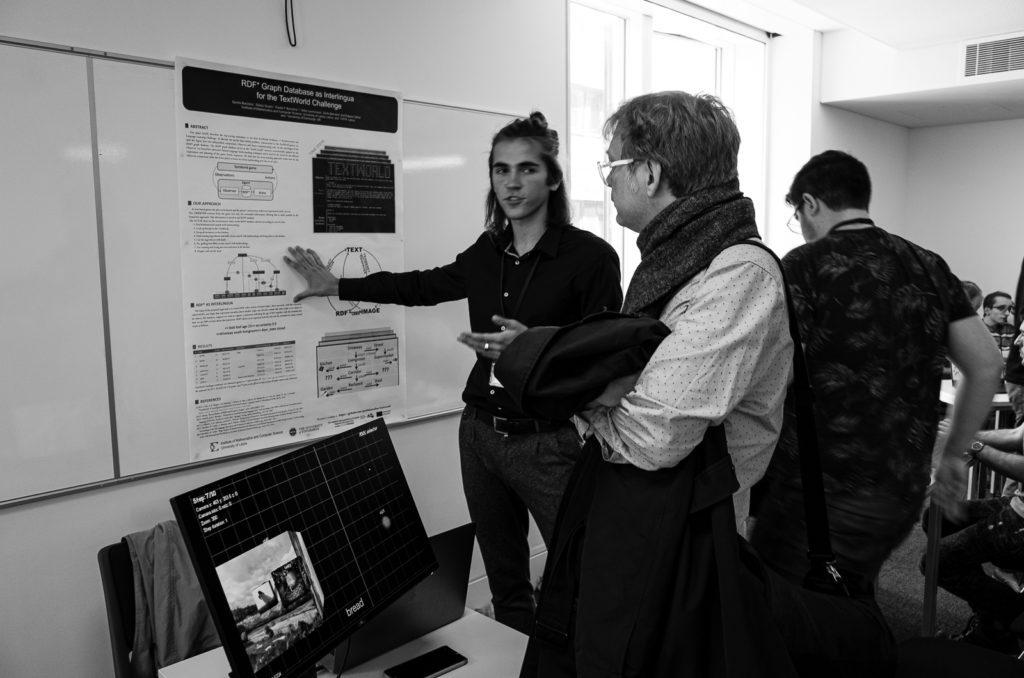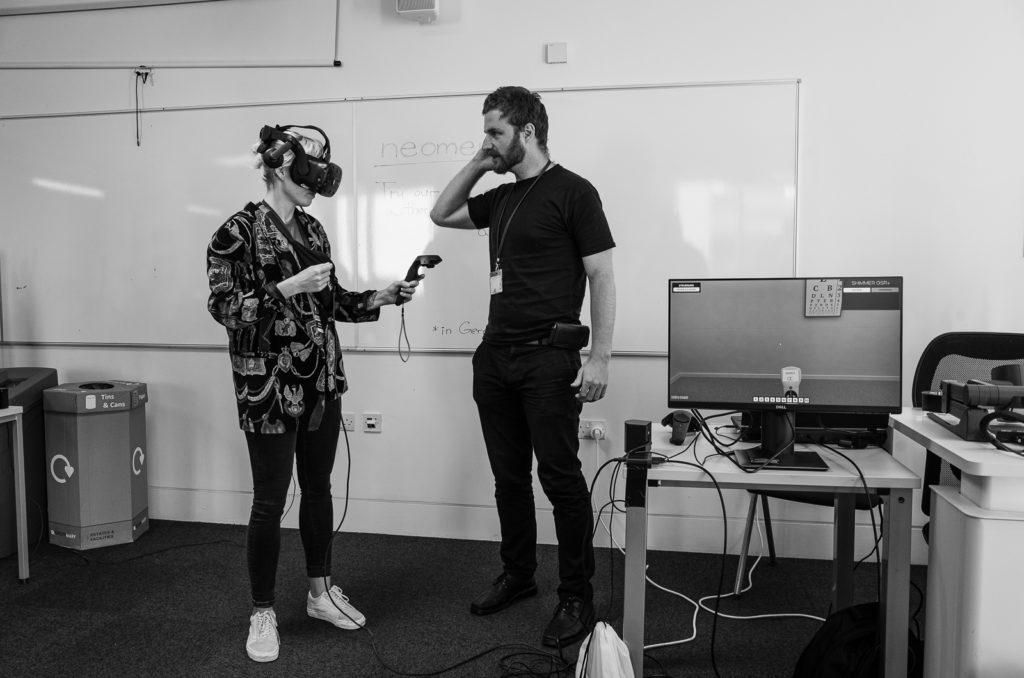Computer Games driving AI,& transforming Society

IEEE Conference on Games
<< back
Our research team got new input at the IEEE Conference on Games (COG) at Queen Mary University of London
From 20-23 August 2019 the international Conference on Games (CoG) was held at Queen Mary University of London. Even if it took place at the first time, the event looks back on a long tradition: starting in 2005 as a small symposium and moving on as a conference (Computational Intelligence and Games (CIG))since 2009, it now came up with a new name and a broader four-day-program on computational creativity, game design, social sciences and artificial intelligence. It promised to share insights and cutting-edge research in the form of presentations of peer-reviewed papers, talks by high-profile industry and academic leaders, panels, poster and more. As our project »Mind the Game! Computer Games driving AI & transforming Society« funded by Volkswagen Stiftung, is also located in the realm of games research and technology, we were curious to discuss recent advances with leading researchers and practitioners from academia and industry.
Located at the Mile End Campus during these days, we have not just been impressed by the University’s elegant buildings in the architectural style of historicism, but also got a true taste of London’s vibrant East End, which is one of the most creative and culturally diverse areas of the city – so it was the perfect place for researchers from all over the world to come together and explore future directions. In the following we point out some highlights that were crucial for our research interest.

First of all, David Silver from Google Deep Mind described the ideas and algorithms that are developed to defeat the human champions in the Game of Go, Shogi and in the real-time game of StarCraft. He gave an important insight on how self learning systems at Google Deep Mind combine reinforced learning with deep neural networks. Emily Short, Chief Product Officer of Spirit AI, shared some results of her projects that combine intent recognition and question classification, sentiment analysis, and customer metrics of user confusion and excitement, to produce specific gameplay effects. Her case studies from Spirit’s work in CE and collected data about user engagement, fuelled our discussion of how to improve the player’s experience of AI.
Further stimulating ideas came from Dr. Katja Hofmann, who is Principal Research Manager at the Game Intelligence group at Microsoft Research Cambridge, UK. She talked about her Project Malmo, an AI experimentation platform, that is built on top of the popular video game Minecraft that turns out to be uniquely challenging for current AI agents. Her talk focussed on opportunties this creates for driving AI research towards faster learning, complex decision making, and – ultimately – collaboration with human players. A project that shows, that computer games constitute hybrid multi-agent ecosystems for interconnecting humans and AI.

During coffee breaks, game nights and evening events, we enjoyed the inspiring atmosphere and took the opportunity to get in touch with potential research partners for future exchange. For example we met Dr. Mike Preuss, Assistant Professor at Leiden University, who works in game AI, natural computing, and social media computing and whom we could invite as Key Note Speaker for our upcoming conference in March 2020 (see Call for Papers). It was great to see, how games can be used as a challenging scenery for real world-problems and applications, as they provide balanced systems and performative elements that will have great impact on social debates of Future Society.
<< back
more information on the conference: www.ieee-cog.org
Mona Leinung, September 2019 / Photos: © Markus Rautzenberg
